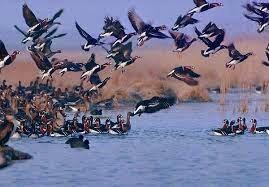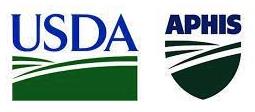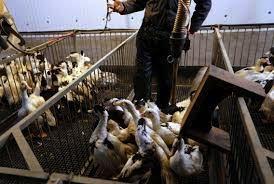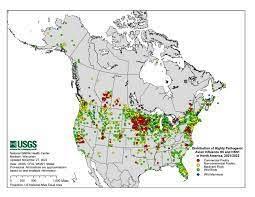 France has elected to vaccinate commercial ducks against Highly Pathogenic Avian Influenza after experiencing successive annual losses in the foie gras segment of their extensive poultry industry. Accordingly, the USDA has banned importation of all poultry including eggs and untreated duck products from the European Poultry Trade Region as defined by the USDA Animal Plant Health Inspection Service (APHIS). Although excluding Great Britain, E.U. nations are included in addition to Iceland, Switzerland and Norway.
France has elected to vaccinate commercial ducks against Highly Pathogenic Avian Influenza after experiencing successive annual losses in the foie gras segment of their extensive poultry industry. Accordingly, the USDA has banned importation of all poultry including eggs and untreated duck products from the European Poultry Trade Region as defined by the USDA Animal Plant Health Inspection Service (APHIS). Although excluding Great Britain, E.U. nations are included in addition to Iceland, Switzerland and Norway.

The action was taken to “Reduce the risk of introducing Highly Pathogenic Avian Influenza (HPAI) into the U.S”. Current USDA regulations disallow importation of poultry and products from nations that have reported HPAI to the World Organization for Animal Health or that have initiated a vaccination program against avian influenza.

This is sheer bureaucratic overreaction that flies in the face of reality. For the edification of decision makers at APHIS, HPAI will inevitably be introduced into the U.S. and Canada by millions of migratory waterfowl and marine birds. The infection should be regarded as both seasonally and regionally endemic. In relation to the risk of wild birds, there is a disproportionately infinitesimal probability of introducing HPAI on poultry or products from France. This also applies to any exporting nation certifying that product was derived from either a region or even a flock free of HPAI. The outdated presumption that vaccination “masks HPAI virus circulating in poultry” is inconsistent with the availability of PCR to detect HPAI antigen.
It is understood that APHIS is discussing HPAI vaccination programs with the European Commission. What the world’s poultry industries require is universal acceptance of vaccination to establish poultry populations with a sufficient level of immunity to obviate mass depopulation. This could be predicated only on acceptance of vaccination and the introduction of appropriate diagnostic protocols and surveillance to maintain trade.
Based on over 50 years experience in poultry veterinary medicine on four continents, it can be stated with the weight of hindsight that “HPAI is the Newcastle disease of the 2020s”. During the 1960s, velogenic viscerotropic Newcastle disease (vvND) threatened the world’s industries until vaccination was adopted as a universal preventive measure. Denmark is the only nation with an established  poultry industry that has periodic problems with Newcastle disease due to a policy of not vaccinating flocks. The U.S. vaccinates against Newcastle disease and we have an extensive export market due to universal acceptance of vaccination against ND. Highly Pathogenic Avian Influenza is a serious financial issue for the public sector in addition to both producers and consumers. The implications of HPAI should not be exacerbated by bureaucratic intransigence and clinging to established policy that restricts flexibility and realism in accepting the benefits of vaccination.
poultry industry that has periodic problems with Newcastle disease due to a policy of not vaccinating flocks. The U.S. vaccinates against Newcastle disease and we have an extensive export market due to universal acceptance of vaccination against ND. Highly Pathogenic Avian Influenza is a serious financial issue for the public sector in addition to both producers and consumers. The implications of HPAI should not be exacerbated by bureaucratic intransigence and clinging to established policy that restricts flexibility and realism in accepting the benefits of vaccination.